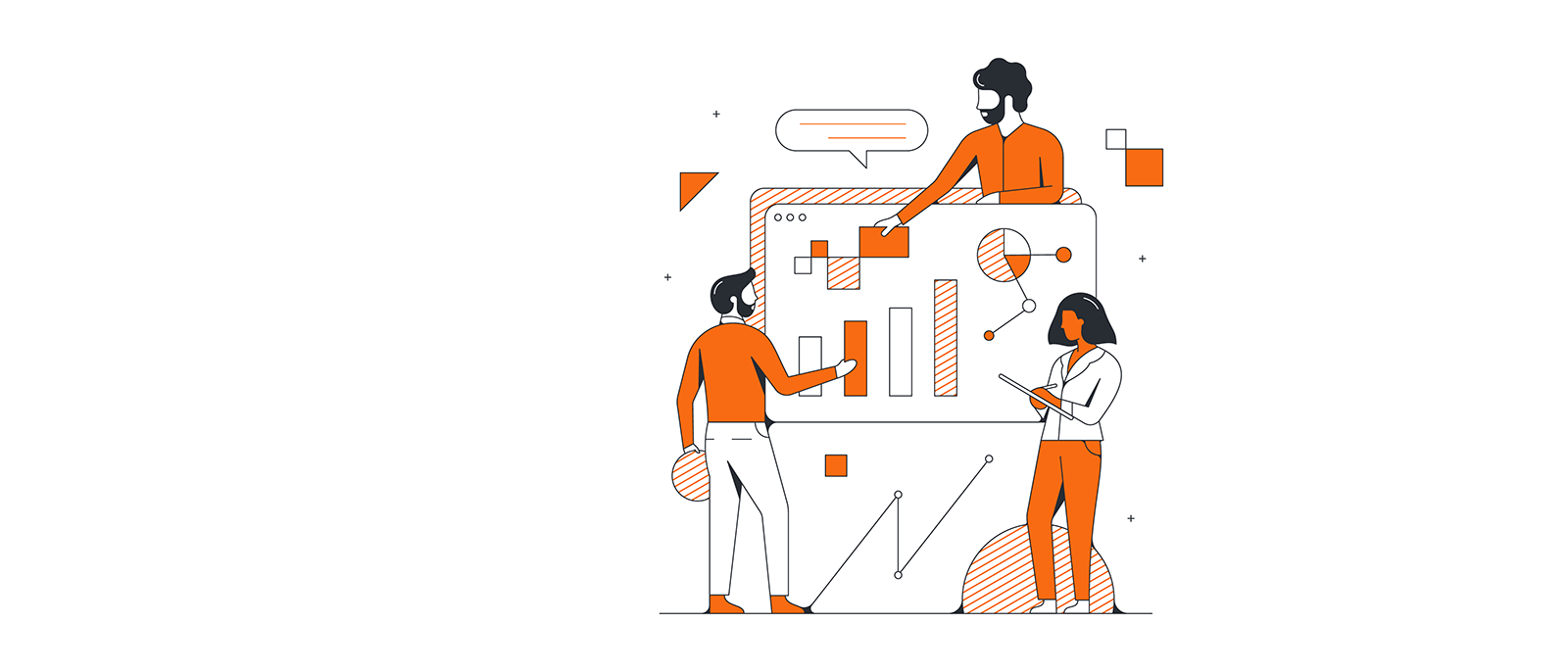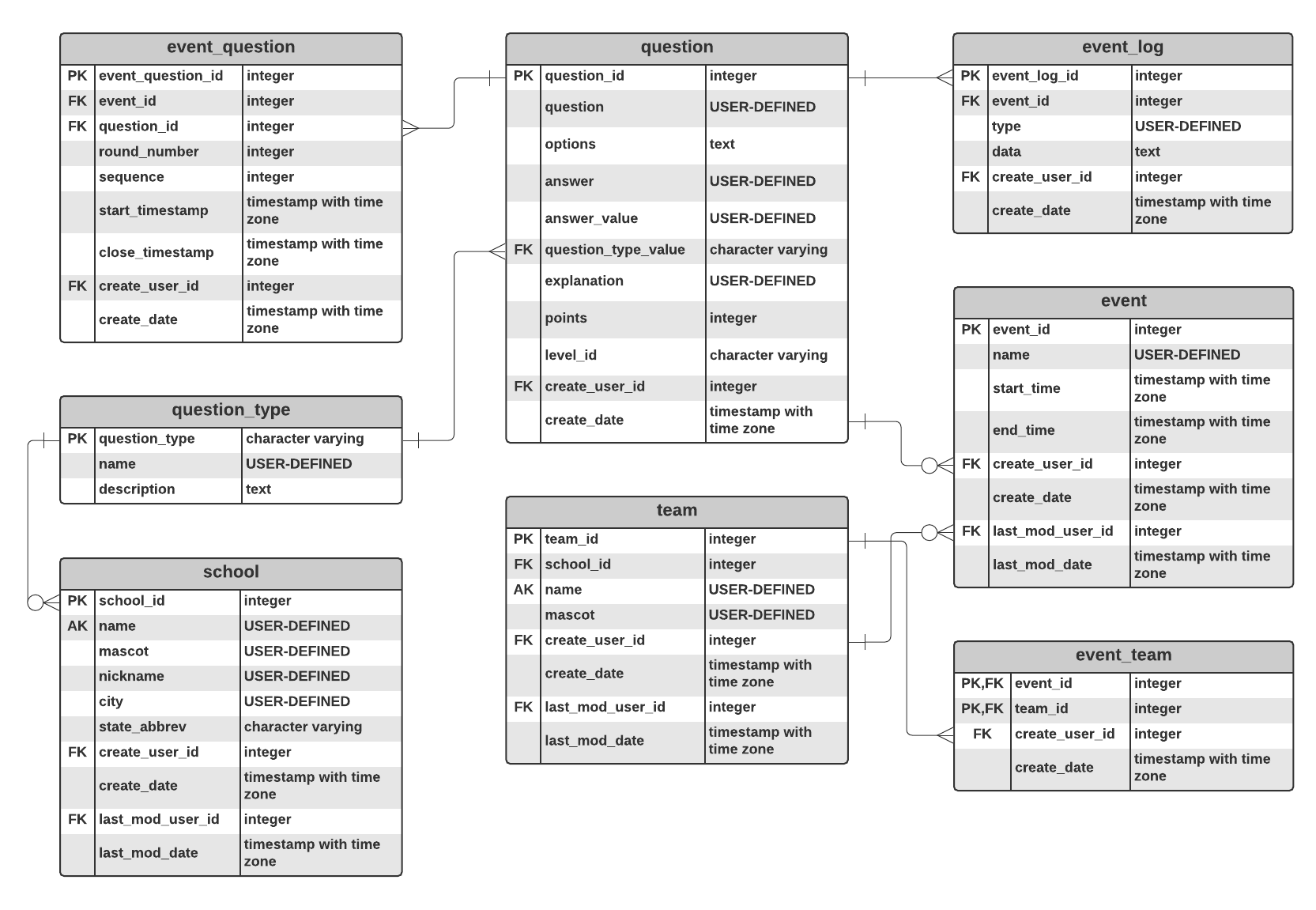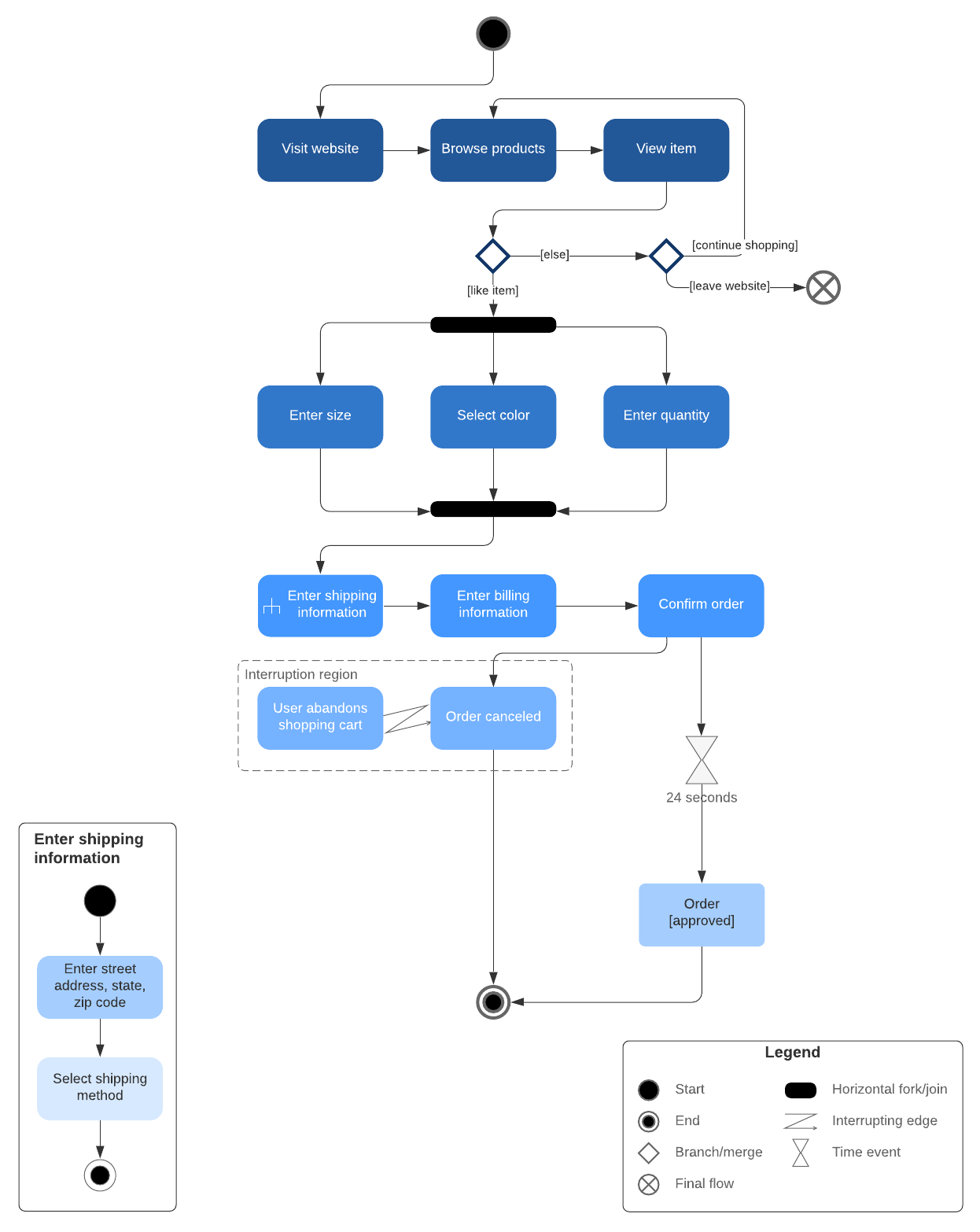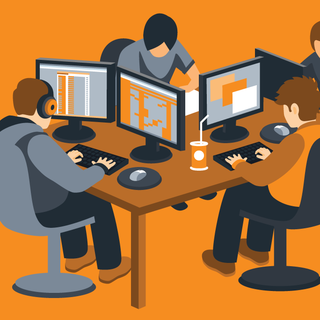
How to increase developer productivity
Lucid Content
Reading time: about 7 min
Improving developer productivity can pay dividends—personally, professionally, and for your entire team. Every developer encounters productivity challenges in their career and these problems can accumulate into bigger issues.
Improving your productivity helps with more than just your day-to-day tasks. Productivity best practices carry over into your teamwork, leadership, and opportunities. To enhance your productivity, consider how productive you are now. Look for opportunities to improve and decide how you want to reach your productivity goals.
Why does developer productivity matter?
Ultimately, programmer productivity matters because your organization’s engineers need to be effective. Developers thrive and enjoy their jobs when they’re productive. Productivity allows you to accomplish more and reach for bigger, more ambitious goals.
Without strong productivity, projects may lag behind and team members may be more susceptible to early burnout and frustration. Productive, happy teams have a certain dynamism that propels organizations forward. These are often the teams that attract the best talent and inspire the next big ideas.
Dev productivity challenges
Developers face significant obstacles to staying productive. Even the best developers could stand to improve their productivity. Remember, this isn’t about blame or pointing fingers. Productivity is a journey and you shouldn’t be embarrassed about where you start or where you are right now.
You may have your own list of areas you want to improve on, but productivity challenges generally fall into these areas for software engineers:
- Unclear or nonexistent benchmarks: When the goal isn’t clear, no one knows how to measure developer productivity for the project, or there aren’t enough benchmarks, your team may lag or lack sufficient motivation.
- Communication woes: Misunderstandings, unmet expectations, insufficient communication, and other communication challenges can strain a team’s coding productivity.
- Burnout: A common challenge for engineers, burnout is a real possibility for devs who experience stress, don’t practice self-care, or struggle with other productivity areas. No one wants to experience burnout. Prevention is key.
- Bad habits: Sometimes, we all practice habits that aren’t helping our productivity. If you’re a manager, you may recognize bad habits in your team members, but tread carefully to encourage successful change.
- Lack of awareness: A developer on your team may not know there’s a better, more productive way to work.
You may need more than one productivity strategy to tackle these challenges successfully in your organization. Fortunately, there are many different approaches you can take on your own and with the support of your team.
Tips for greater developer productivity
Whether you are a developer yourself or you primarily manage a team of developers, implementing these practices at your organization will boost overall productivity. If you manage others, remember to model good productivity in your own work. Aside from setting a positive example, growing your own productivity is a win-win.
To kickstart your productivity, always start with the basics. Developers who aren’t implementing good basic productivity principles often struggle with other areas. Only getting three hours of sleep every night, for instance, makes for a more hectic workday that Agile processes alone probably can’t fix.
Start with the basics
Get plenty of sleep, eat well, and take good care of yourself.
- Schedule your sleep: Plan for at least seven to nine hours of sleep every night. If necessary, set a timer and commit yourself to going to bed and waking up at consistent times. Try to stick to the schedule even on your days off.
- Be a healthy remote worker: If you work remotely, be extra careful to create enough work-life separation and balance.
- Follow a routine: Remote workers may struggle more with following a daily routine, but everyone benefits from building a consistent lifestyle. Routines help people feel more grounded and connected.
- Stay active: Exercise is important, even if it’s just walking around the room once in a while.
- Eat a balanced diet: Healthy eating helps you feel your best so you can be more productive at work.
Feed your brain
Read books, work on a variety of different projects, collaborate outside your team with people from other disciplines and departments. Look for opportunities to expand your knowledge and grow your technical skills.
- Take a class: Try exploring open courseware, auditing a local class, or signing up for an online bootcamp.
- Learn another coding language: Growing your technical skills by learning a new language or branching out to a new platform can give you new perspectives on the skills you already use every day.
- Try a new challenge: Take on new challenges and encourage others to grow into new technical skills within your organization.
Connect with others
Engage with team mates and build community within your organization.
- Seek mentors: A coding mentor can help you break past challenges and see problems from a new perspective.
- Mentor others: Serving as a mentor to someone else may fuel your own coding productivity and your mentee’s productivity as well.
- Do lunch: Take time to connect with others at work, even if you work remotely.
- Try a coding challenge: Work on a coding project in your organization or outside of it with others (such as in a volunteer capacity for an open source project).
Get creative and focused
Creativity and focus allow you to work more efficiently and effectively even if your coding work is more on the technical side.
- Find your zone: Experiment with your work environment. Find when you’re the most productive and plan your big projects around that schedule.
- Use music: Your favorite tunes might help you focus or they might be a distraction. Experiment with different sounds or keep your environment quiet and see how your productivity is impacted.
- Try positive procrastination: Working through a hard task is sometimes easier if you rest your brain while taking a break, enjoying lunch, or changing projects temporarily.
- Study and take productivity notes: When you notice you’re particularly productive, jot down what you’re doing differently.
Change your team structure or rethink your coding philosophies
How your team works on coding projects is important for productivity, too.
- Implement the two-pizza rule: Jeff Bezos’ famous rule means not having a team that’s too big to feed with two pizzas. Small teams are primed for effective communication. Individuals can still contribute, but there are enough people to take on bigger projects.
- Utilize Scrum: Using Scrum methodology, your team organizes projects in shorter sprints instead of aiming for one distant goal.
- Build documentation while coding: By writing documentation during the coding process instead of at the end, you can avoid saving it for the end and inadvertently missing key details.
- Refactor code: As your team works, regularly refactoring code helps you ensure your code is clean, efficient, and easy to maintain.
- Use developer productivity tools: Depending on the coding work you do, you may benefit from using one or more developer tools to work more efficiently.
Use real-time data and visuals to guide your team
Engineers can’t make decisions about their work without good data. Visualization is one way to get the information you need.
- Use an ERD: Entity relationship diagrams are important when you’re designing a database and can be important to have if you’re referencing databases in your work.
- Visualize your project with UML: See how your system is engineered by using unified modeling language. You can also use UML with modeling business projects, too.
- Create a cloud architecture diagram: By visualizing your cloud architecture with Lucidchart Cloud Insights, you can stay informed about real-time changes to your cloud use. Your cloud engineers can communicate with other teams, be up-to-date with current data, and plan upcoming changes.


Ensure that everyone on your team can see the information they need to work productively. Without the right data and real-time intelligence, making relevant coding choices is more difficult.
How software developers can improve productivity
Above all, having the right attitude toward productivity is essential. Developing a coachable, growth-oriented mindset allows you to see opportunities others might miss altogether. Productivity creates opportunities for you personally and for your organization as a whole.
Being productive isn’t a project you complete—it’s a continuous process for developers. If you stay flexible and experiment with different productivity strategies, you can improve your own productivity and stay on-target with your projects.

Align your product and engineering teams to improve collaboration, productivity, and reach your organization’s goals.
Bring your teams togetherAbout Lucidchart
Lucidchart, a cloud-based intelligent diagramming application, is a core component of Lucid Software's Visual Collaboration Suite. This intuitive, cloud-based solution empowers teams to collaborate in real-time to build flowcharts, mockups, UML diagrams, customer journey maps, and more. Lucidchart propels teams forward to build the future faster. Lucid is proud to serve top businesses around the world, including customers such as Google, GE, and NBC Universal, and 99% of the Fortune 500. Lucid partners with industry leaders, including Google, Atlassian, and Microsoft. Since its founding, Lucid has received numerous awards for its products, business, and workplace culture. For more information, visit lucidchart.com.
